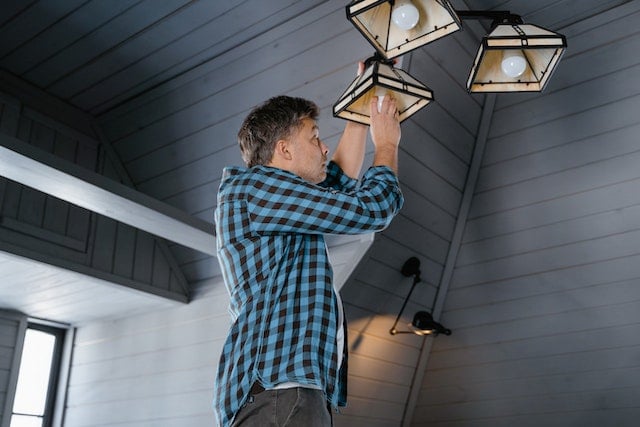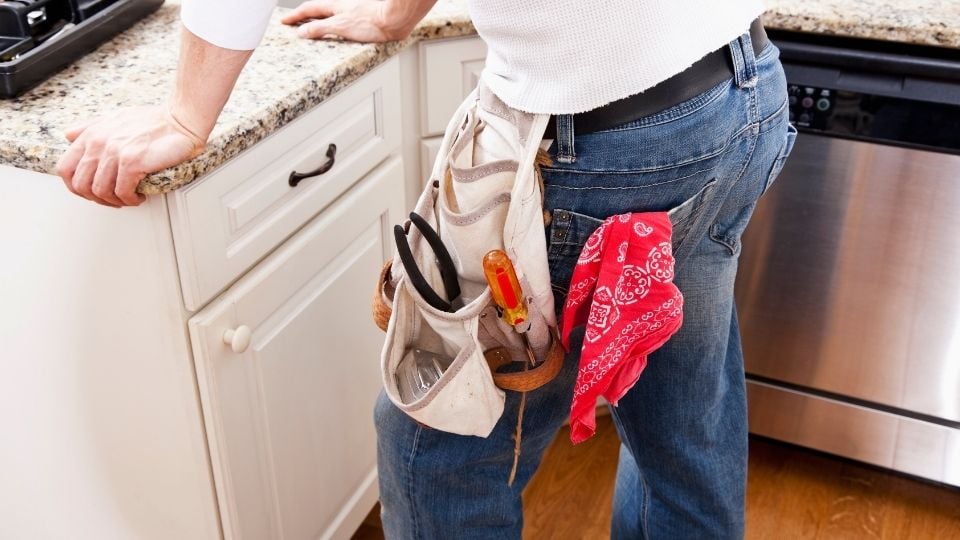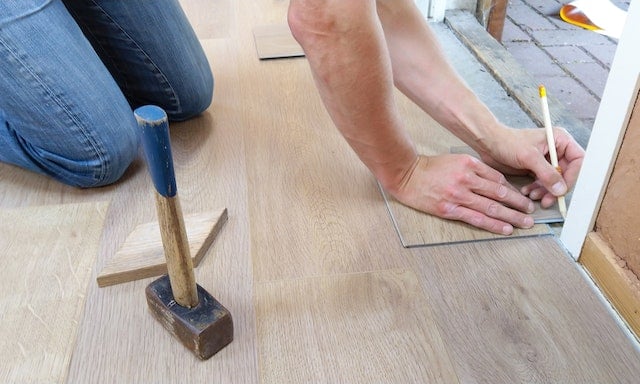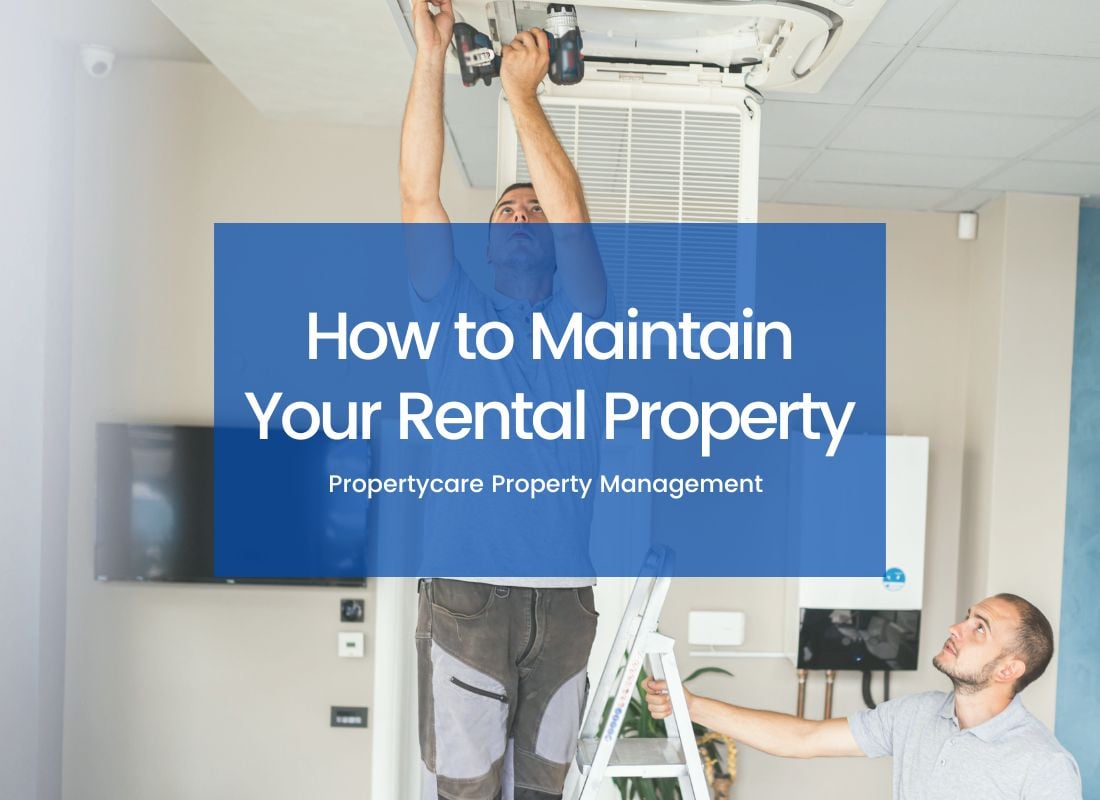Key Takeaways
- Reduced Costs – Regular maintenance and proactive repairs help landlords protect their investments, reduce costly emergencies, and maintain tenant satisfaction.
- Simplified Management – Setting clear maintenance expectations for tenants ensures smoother property management and prevents avoidable damage.
- Legal Compliance and Reduced Vacancies – A well-maintained rental property attracts reliable tenants, minimizes vacancy rates, and ensures compliance with local housing laws.
Keeping a property in good condition ensures long-term profitability, tenant satisfaction, and legal compliance. A well-maintained property also attracts reliable tenants, reduces turnover, and helps avoid costly repairs. By staying proactive and setting clear expectations for tenants, landlords can streamline property management and avoid unnecessary stress.
To better understand how to maintain your rentals, our experts at Propertycare Property Management have put together this guide!
Speak with Our Property Managers!
Why Property Maintenance Matters for Landlords
Proper maintenance plays a key role in maximizing the return on investment for landlords. Addressing maintenance issues early minimizes risks and helps maintain a safe and livable environment for tenants.
Well-maintained properties also comply with local housing laws and regulations, reducing the risk of fines or legal disputes. Additionally, tenants are more likely to renew their lease when they feel secure and comfortable, which results in steady income and reduced turnover costs.
Essential Responsibilities of a Landlord
Landlords have legal and practical responsibilities when it comes to property maintenance. These responsibilities typically include:
- Keeping the foundation, walls, roof, and flooring in good condition.
- Ensuring pipes, drains, wiring, and outlets are functioning properly and safely.
- Maintaining proper climate control systems to ensure tenant comfort.
- a contractor in a blue plaid shirt inspects a light fixtureAddressing infestations before they become severe.
- Maintaining hallways, parking lots, and shared spaces in multi-unit properties.
- Ensuring smoke detectors, carbon monoxide alarms, and security locks are operational.
By handling these responsibilities promptly, landlords can reduce repair costs, increase tenant satisfaction, and avoid potential legal issues.

Setting Clear Maintenance Expectations for Tenants
While landlords are responsible for major maintenance tasks, tenants also play a role in property upkeep. Setting clear expectations helps prevent conflicts and ensures the property remains in good condition. Tenants are responsible for:
- Keeping the property clean to prevent mold, pests, and unnecessary wear and tear.
- Informing the landlord about leaks, electrical problems, or damages as soon as they occur.
- Following trash collection guidelines to avoid pest infestations.
- Using appliances properly and avoiding actions that could lead to property damage.
Providing tenants with a written maintenance guide as part of the lease agreement can help clarify responsibilities. Landlords should also communicate how tenants can submit maintenance requests and what to expect in terms of response time.
Proactive Tips to Keep Your Rental Property in Top Shape
Preventative maintenance is the most effective way to reduce long-term costs and avoid unexpected repairs. Implementing a routine maintenance plan can keep the property in good condition and ensure tenant satisfaction. Here are some key maintenance tips:
Perform Regular Inspections
Performing scheduled inspections helps identify issues early. Common inspection points include checking for leaks, inspecting HVAC systems, ensuring appliances are functional, and looking for signs of pest infestations. Inspections should be conducted at least twice a year.

Keep Up with Seasonal Maintenance
Each season presents different maintenance challenges:
- Spring – Check for roof damage, clean gutters, inspect exterior paint, and service the air conditioning unit.
- Summer – Ensure proper lawn care, inspect outdoor plumbing, and check windows for any needed repairs. Hot temperatures can put stress on cooling systems, so routine HVAC maintenance is also essential.
- Fall – Service the heating system, clean chimneys, and clear out leaves from gutters. Inspect insulation and seal any gaps to further improve energy efficiency before colder months.
- Winter – Prevent frozen pipes, ensure adequate insulation, and inspect weather stripping around doors and windows.
Build a Network of Reliable Contractors
Having a list of trusted plumbers, electricians, HVAC technicians, and general contractors ensures that repairs can be completed quickly and efficiently. Establishing good relationships with these professionals can also lead to better pricing and priority service when emergencies arise.
Address Repairs Promptly
Small problems can escalate into major repairs if left unattended. Establish a system for tenants to report maintenance issues quickly, whether through a phone call, email, or a dedicated property management portal.
Budge for Necessary Upgrade
Property renovations can help increase its value and among other things. Updating appliances, fixtures, or flooring can make the property more attractive to tenants and reduce long-term maintenance costs. Energy-efficient upgrades such as LED lighting, smart thermostats, and energy-efficient windows can also lower utility expenses and increase property value.

Document Maintenance and Repairs
Keeping detailed records of maintenance and repairs helps track expenses, provides proof of compliance with legal requirements, and ensures warranty claims can be processed if needed. Digital records, photos, and receipts should be organized for easy reference. A documented history of maintenance can also increase the property’s value if you decide to sell in the future.
Encourage Long-Term Tenants
Happy tenants are more likely to renew their lease, reducing turnover and vacancy periods. Prompt responses to maintenance requests, periodic check-ins, and keeping the property in good condition contribute to tenant retention.
Establish an Emergency Maintenance Plan
Unexpected issues like plumbing leaks, power failures, or storm damage can occur at any time. Having a clear emergency maintenance plan in place ensures tenants know how to report urgent issues and that you have the necessary resources to address them quickly. Ensure that emergency contacts for utility services, repair contractors, and property management staff are easily accessible. This is especially important if you’re a long-distance landlord!
Stay Informed About Local Housing Laws
Maintenance requirements and landlord responsibilities can vary by location. As such, keeping up with local housing codes ensures compliance and helps avoid fines or legal disputes. Regularly review Texas landlord-tenant laws and consult with legal professionals if necessary to stay up-to-date.
Bottom Line
When renting out a home, you need to make a consistent effort to maintain it, but it’s essential for long-term success. Well-maintained properties attract reliable renters, comply with legal requirements, and preserve property value over time. Propertycare can assist landlords by handling maintenance tasks efficiently and ensuring properties remain in top condition. Contact us today to learn more about our services!

